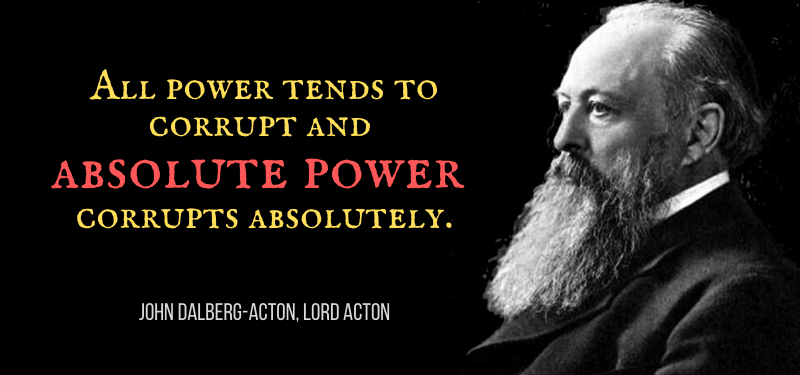According to him, Great men are always bad men: Who is John Dalberg-Acton?
One of the most famous spokesmen of British liberalism. He is best remembered for the remark he wrote in a letter to an Anglican bishop in 1887. According to him, "Power tends to corrupt, and absolute power corrupts absolutely."

British historian and journalist (Naples 1834-Tegernsee 1902). John Emerich Edward Dalberg Acton, First Baron of Acton, one of the most famous spokesmen of British liberalism, edited the monthly Catholic magazine The Rambled between 1859 and 1865.
He resigned from his post due to the restrictions of the church that damaged his independence, and although he remained loyal to the church, he was frequently criticized by religious circles for opposing the Vatican Council's decisions on the infallibility of the pope and similar decisions.
John Emerich Edward Dalberg-Acton, 1st Baron Acton, 13th Marquess of Groppoli, KCVO, DL (10 January 1834 – 19 June 1902), better known as Lord Acton, was an English Catholic historian, politician, and writer. He is best remembered for the remark he wrote in a letter to an Anglican bishop in 1887: "Power tends to corrupt, and absolute power corrupts absolutely."
He contributed to the founding of the magazine English Historical Review in 1886. In 1895, he was appointed professor of modern history at Cambridge University, and in 1899 he became the coordinator of the Cambridge Modern History collection.
The thoughts of Acton, who started but could not complete a comprehensive study in which he examined the modern scientific history method and the history of freedom, were collected in two conference texts he prepared in 1877: The History of Freedom in Antiquity, and The History of Freedom in Christianity.
According to Acton's basic point of view, "Every power tends to corrupt. The corruption of absolute power is inevitable. Great men are always bad men."
